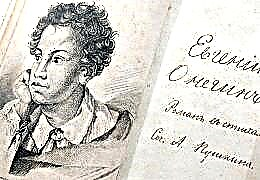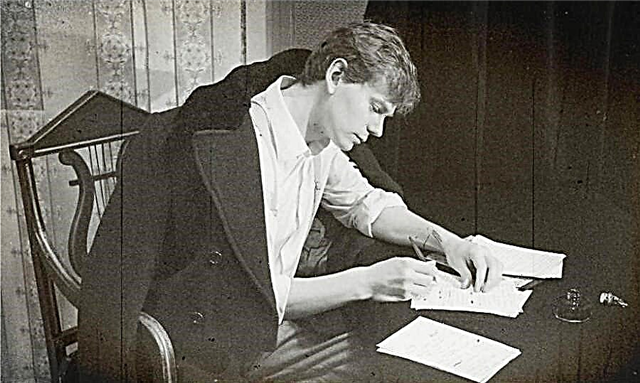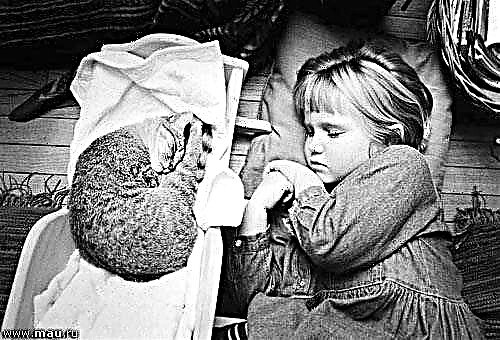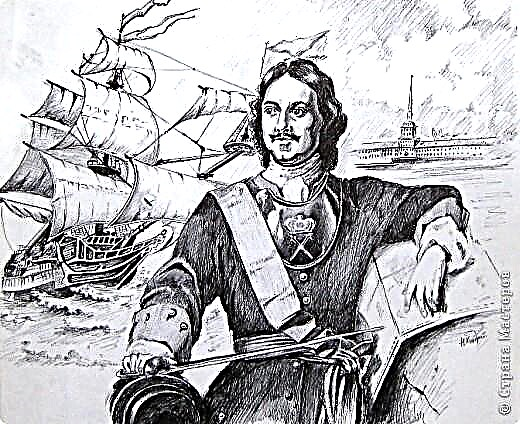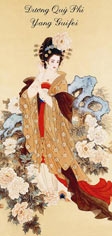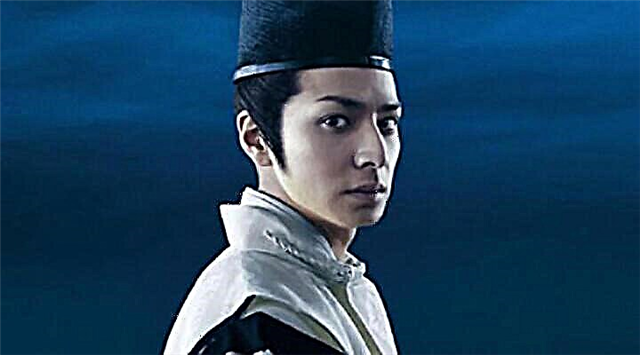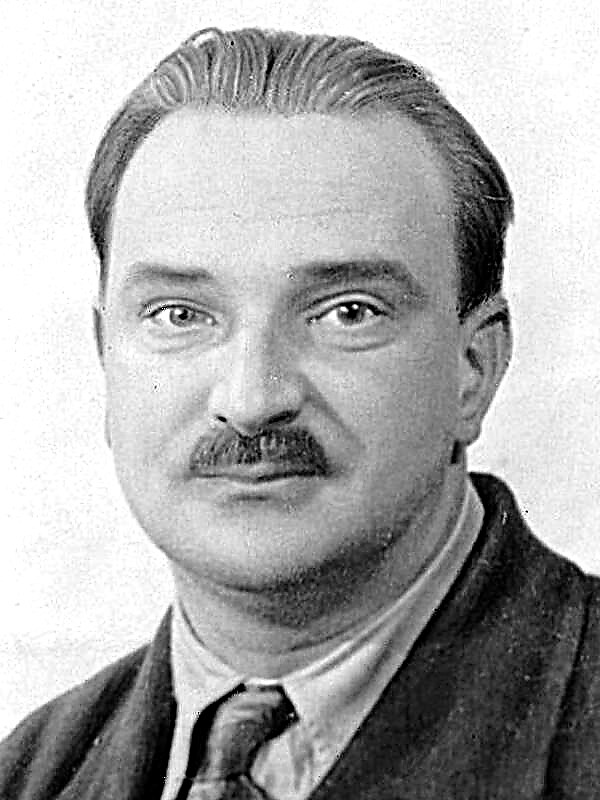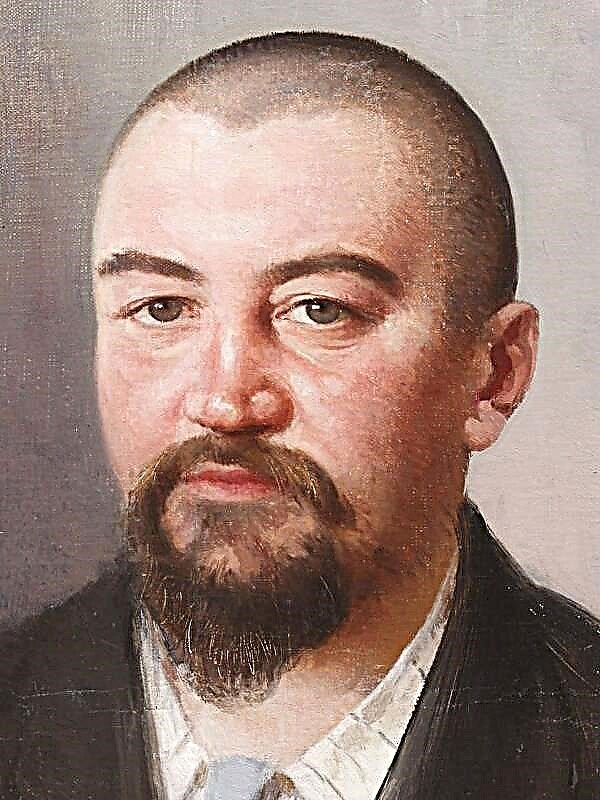Prose writer and poet I.A. Bunin is called the jeweler of the word. He was the first Russian writer to receive the Nobel Prize in Literature. An aristocrat by birth, the writer went down in history as one of the brightest representatives of the Silver Age. In prose, he, like a painter, painted pictures of the life of his heroes, saturated with landscapes and the beauties of their native penates. After all, the topic of Russia and its fate was especially acute for Bunin, who spent most of his life in forced emigration. And many of the works that brought him fame and recognition were written precisely in a foreign land.
History of creation
For the first time the story "Caucasus", which is part of the famous cycle "Dark Alleys", was published in 1937. At that time, Bunin had long lived abroad. In his memoirs, he sometimes resented contemporaries who were skeptical of his words about the fiction of the plots of works. And there is an explanation for this. The author always described events surprisingly realistic, casual and therefore convincing. But the basis of the "Caucasus", however, is the events that took place in the life of Bunin himself. He once left Moscow for Kiev with one married lady. At the same time, as in the story, the author did not admit, whether it was love, or a connection. The ending of the story is tragic.
Moreover, Ivan Alekseevich has never been to the Caucasus. But he consciously compared the description of local beauties with gloomy autumn Moscow. After all, the personal life of the writer did not develop cloudlessly and smoothly. Therefore, the withering nature of the capital symbolizes the inconstancy, ephemerality of human feelings. But along with this, a detailed description of the Caucasian landscapes recalls the existence of love, happiness and peace.
Genre, direction
The genre of the work "Caucasus" is a story. This is a short, concise and lyrical story, which is also characteristic of other works of the Dark Alleys cycle.
The direction in literature is realism. The author sought to reflect reality as fully and reliably as possible, yet resorting to a system of images. He revealed the spiritual world of heroes through a description of nature. Thanks to this, the picture of the development of events appears before the eyes of the reader accurate and expressive.
Essence
The plot is based on a love triangle. The wife leaves her husband as an officer and leaves by train with a secret admirer to the Caucasus. The story is told on behalf of a lover. The description is permeated with his personal experiences, sensitivity and suspiciousness. Anxious nature in the alarming manifestation of forbidden feelings.
The woman’s husband suspects her of treason, and therefore goes after him, looking for her at the resorts from which she sent him postcards. Not finding his wife, but realizing her deception, he shot himself, thereby trying to preserve his officer honor.
The main characters and their characteristics
- Lover Hero, on behalf of whom the story is built, appears in the image of a frightened, excited, but deeply sensitive person. He lives in the anxious anticipation of happiness with his beloved. He notices the slightest changes in her facial expressions, gestures, and behavior, and many injure him. A man with all his heart wants to find love harmony with her, but he admits to himself that this love is wrong, forbidden and condemned by society. Not explicitly, but the author focuses on the fact that modern society is not able to accept different shades of love. And this feeling, with rare exceptions, can be analyzed, because the whole inner world of the hero is saturated with anxiety and at the same time with a pleasant sensation of impending happiness.
- Heroine woman not endowed with a name, but literally from the very first words it becomes clear that for her life is worse than her beloved than death at the hands of a disgusting husband. She throws herself into a mutual feeling, like a whirlpool with her head, risks her position, puts at stake the reputation of her husband an officer and leaves with her lover for the Caucasus. To know the grains of this true and fleeting happiness becomes for her above all. Grains because lovers have only two or three weeks with each other, after which they will have to return to gray Moscow and get bogged down in their former way of life. And the woman is still led by a desire to leave sweet memories of a vacation with her beloved. Exactly until then, when she will be forced to return to her husband, because even death is not afraid of her.
- Heroine's husband with her cues, looks oppressive and selfish. He says: “I will stop at nothing, defending my honor, the honor of my husband and officer!” Thus, he scares a woman, hints at the groundlessness of his suspicions of her treason. Apparently, in alliance with him, she lives like a bird in a golden cage, without love and spiritual intimacy, which only encourages the lady to make changes in her life. But at the end of the story, the husband shows nobility by suicide. After all, he could, having guessed the betrayal, settle accounts with his wife’s lover, but instead chose to die, thereby granting his wife the right to love and happiness and saving himself from a degrading situation.
Topics
- Love - The main theme of the works of the series "Dark Alleys." And in the story “The Caucasus,” Bunin wanted to reveal the facets of this feeling, to show its importance in human life. Moreover, here the author emphasizes that love is the meaning of existence, its foundation and support. But this feeling does not always bring joy to those who have experienced it and, as a result, does not always lead to mutual happiness. However, the writer shares his thoughts that happiness for each his own. Perhaps, for the heroine’s husband, it consisted in the stability of his official and marital status, in the loyalty of his wife and the constancy of all achieved life goals. But not everyone wants to imitate well-being and can. Therefore, for a woman and her lover, the attainment of love and harmony ascends to the podium.
- Jealousy. Bunin also reflects in the subject of the story the harmful effects of jealousy and selfishness. Eating them, the heroine’s husband wants to forcibly tie her to himself, subjecting to total control. He does not see immediately, but already on the verge of his pride.
- Historicism. Of course, the historical period of writing the story dictates to its heroes the rules of life and the canons of mass ideology to block any sensory manifestations that are not accepted in society. This expresses the historicism of the story, which reflects the realities of the depicted era.
- Nature. This topic runs through the whole story with a red thread. The emotional state of the heroes is clearly reflected in the description of gloomy Moscow in order to emphasize the heartfelt excitement of lovers, their insecurity in tomorrow and the alarming probability of exposure. But having escaped, they plunge into another environment, completely unusual for both. A detailed description of the landscapes of the Caucasus by the author is not accidental. This is a way for the characters to enjoy the moment of happiness and stretch it. After all, they feel his fragility and temporality, but still see him as the meaning of life.
Problems
The problems of the story “The Caucasus” comprise complex life questions, the answers to which the characters are trying to find. You can highlight the moral and ethical aspects and reflect on whether the actions of the characters fit into these norms. Also significant is the psychological aspect, according to which lovers are in a constant sense of danger, anxiety, but also cloudless happiness.
The author touches on the eternal problems of love and hate, life and death, the meaning of life in his work. But the main problem remains criminal love, since it is it that is connected with the main theme of the story. Heroes propose their own solution, allowing the reader to observe a possible outcome.
Meaning
Why did Bunin write his story “The Caucasus”? Again, if you trust some sources, the writer had personal experience with a married woman. But he never had the chance to find out how the further fate of her husband was. And the merciless ending of the story looks like an attempt to conceive the development of events.
Speaking about the idea of the work, it can be noted that the author again emphasizes the importance of love in human life. But in the context of the story “The Caucasus,” he hints that each of us has a choice of path, and everyone has their own price of happiness.
Perhaps the author argues that, by condemning one person to death, peace cannot be achieved with another. The torment of conscience will wake up sooner or later. But the heroes made their choice in favor of feeling, and in the consequences of this they could only see a threat to their own security and the loss of the opportunity to be together, but not the death of the husband-officer.
I.A. Bunin revealed in his story “The Caucasus” the tragedy of love, through the moral and emotional choice of heroes, illustrating how, against the background of a sincere and bright feeling of two lovers, a personal drama of one deceived and rejected person can be played out. The main idea of the work is to point out the sharp edges of the love conflict, how easy it is to cut oneself about the passions burning in the hearts of people. And yet, despite the tragic ending, the author does not stop singing the hymn of love, a hymn to the feelings that make a person’s life bright, intense and fast-paced.
Output
Egoism gives rise only to reciprocal indifference. The author shows this as an example of the fate of an officer. He did not agree to peacefully release his wife, seeing and feeling her rejection. Their marriage was doomed, but the man was more worried about his reputation in society than his spouse, and was punished for it. In response to his unwillingness to do anything, the woman is deceived, preferring, like him, to follow his beliefs and needs, neglecting the interests of the partner. Seeing a vicious circle of indifference, where he ran after his wife to the resorts, the officer realized his mistake, but could not find a way to correct it.
The author teaches us to be sensitive in relation to each other, teaches us not to go ahead, but to compromise. In every conflict there is a reasonable solution, you just need to be ready to give up something of your own for the good of those around you. This skill is lacking for many, and its lack is deplorably reflected in interpersonal relationships in all areas of life.

